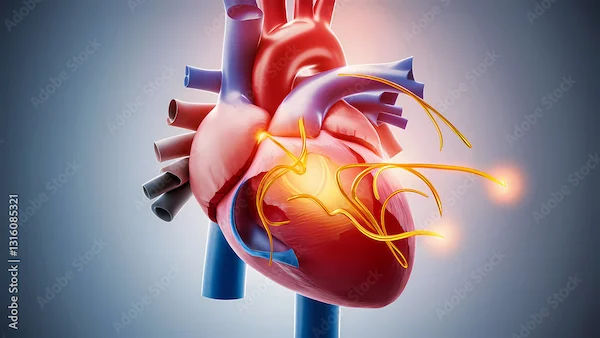Vitiligo Overview: Symptoms, Causes, and Treatment
Get a comprehensive overview of vitiligo. Learn about its symptoms, potential causes, and available treatment options for this skin condition that causes depigmentation.

Written by Dr. J T Hema Pratima
Reviewed by Dr. Rohinipriyanka Pondugula MBBS
Last updated on 22nd Aug, 2025

Vitiligo is a skin condition that causes patches of skin to lose their natural color, resulting in white or light colored spots. While it doesn’t harm your physical health, it can affect self-esteem and emotional wellbeing. If you or someone you know has vitiligo, understanding the condition can help manage it better.
What is Vitiligo?
Vitiligo occurs when the cells that produce melanin—the pigment responsible for skin, hair, and eye color—are destroyed or stop functioning. This leads to uneven patches of depigmented (white) skin. The condition can affect any part of the body, including the face, hands, arms, legs, and even hair.
Vitiligo is not contagious, painful, or lifethreatening, but it can be emotionally challenging due to its visible nature.
Symptoms of Vitiligo
The main symptom of vitiligo is the appearance of white patches on the skin. These patches:
Can appear anywhere on the body.
Often start small and may grow over time.
May have irregular or welldefined borders.
Can sometimes affect hair, turning it white or gray.
Are more noticeable in people with darker skin tones.
Some people also experience:
Premature graying of scalp hair, eyebrows, or eyelashes.
Loss of color in the mucous membranes (inside the mouth or nose).
What Causes Vitiligo?
The exact cause of vitiligo is still unknown, but researchers believe it may be due to:
1. Autoimmune Response – The immune system mistakenly attacks and destroys melanocytes (pigment-producing cells).
2. Genetic Factors – A family history of vitiligo increases the risk.
3. Environmental Triggers – Stress, sunburn, or exposure to certain chemicals may trigger or worsen vitiligo.
4. Neurogenic Factors – Nerve endings in the skin may release substances harmful to melanocytes.
Consult a Top Dermatologist for the best advice
How Does Vitiligo Affect Health?
While vitiligo doesn’t cause physical pain, it can lead to:
Emotional distress due to changes in appearance.
Increased sun sensitivity in depigmented areas (higher risk of sunburn).
Eye issues (rarely, some people may develop vision problems).
Treatment Options for Vitiligo
While there is no complete cure for vitiligo, treatments can help restore skin color or even out skin tone. Options include:
1. Medical Treatments
Topical Corticosteroids – Creams that help return color to the skin.
Calcineurin Inhibitors – Nonsteroidal creams for sensitive areas like the face.
Phototherapy (Light Therapy) – UV light treatment to stimulate pigment production.
Depigmentation Therapy – For extensive vitiligo, lightening unaffected skin to match white patches.
Surgical Options – Skin grafting or melanocyte transplants in stable cases.
2. Lifestyle & Home Care Tips
Sun Protection – Use sunscreen (SPF 30+) to prevent sunburn on depigmented areas.
Cosmetic Coverups – Makeup or selftanners can help camouflage patches.
Healthy Diet – Some studies suggest antioxidants (vitamins C, E) and minerals (zinc, copper) may support skin health.
Stress Management – Yoga, meditation, and counseling can help cope with emotional effects.
When to See a Doctor?
Consult a dermatologist if:
You notice new white patches on your skin.
Existing patches are spreading.
You experience emotional distress due to vitiligo.
Early treatment can help slow progression and improve appearance.
Book a Consultation with Apollo 24|7
If you or a loved one is dealing with vitiligo, expert dermatologists at Apollo 24|7 can provide personalized care and treatment plans. You can easily book an online consultation or schedule a test through the Apollo 24|7 app or website.
Final Thoughts
Vitiligo is a manageable condition, and with the right treatment and support, individuals can lead a confident and healthy life. If you have concerns about skin changes, don’t hesitate to seek medical advice. Remember, your skin doesn’t define you—what matters most is how you feel inside.
Would you like to speak to a dermatologist today? Visit Apollo24|7 for expert guidance!
Consult a Top Dermatologist for the best advice
Consult a Top Dermatologist for the best advice

Dr. Chandrashekhara Aithal
Dermatologist
33 Years • MBBS, DVD SKIN & STD
Bengaluru
Smruthi ENT & Multi Speciality Centre, Bengaluru
Dr. Mayuri Jain
Dermatologist
11 Years • MBBS, MD Dermatology , Venereology & Leprosy
Delhi
Dr Mayuri Jain Clinic, Delhi

Dr. Parul Gohil
Dermatologist
5 Years • MBBS, MD(DERMATOLOGY,VENEREOLOGY & LEPROSY)
Bengaluru
Apollo Clinic, JP nagar, Bengaluru

Dr. Priyankar Misra
Dermatologist
10 Years • MBBS,MD(D V & L)
Kolkata
Tridermis Skin and hair clinic, Kolkata
(25+ Patients)

Dr. Priyankar Mishra
Dermatologist
11 Years • MBBS, MD Dermatology , Venereology & Leprosy
Kolkata
MCR SUPER SPECIALITY POLY CLINIC & PATHOLOGY, Kolkata




